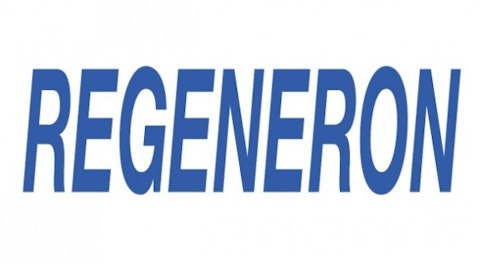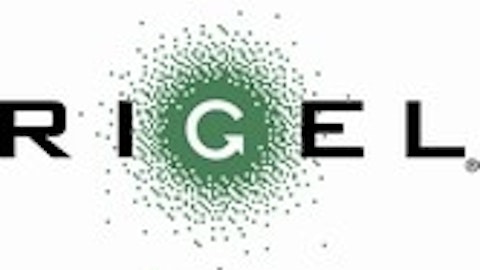Everyone has had a friend at school who was asthmatic. Life is not easy for the chronic asthmatic. It is painful experience watching kids wheezing and groaning under an attack on the playground, looking for their inhalers. A number of therapies, including tablets and inhalers, are available to treat asthma; however, asthma has no real cure to date. Current products are only meant to control asthma attacks. Therefore, patients are hoping for a therapy which will cure asthma permanently. This is where dupilumab comes in.
About dupilumab
A few biotech companies aim at novel treatment methods instead of preventive measures. They are currently focusing on genetically developed biologic agents such as monoclonal antibodies (MAb) as possible therapeutic options for moderate to severe asthma. It is believed that monoclonal antibodies will give some hope for patients looking for a curative medicine. With this article I would like to provide an overview on the efficacy and development status of dupilumab, a monoclonal antibody treatment that may be a possible candidate for treating allergic asthma.
Sanofi SA (ADR) (NYSE:SNY) and Regeneron Pharmaceuticals Inc. (NASDAQ:REGN) are developing dupilumab to cure moderate to severe allergic asthma. Dupilumab is a Phase II trial candidate. It primarily targets the immune system and interferes with the allergic responses in an asthma patient. Recently, the two companies announced that Phase IIa study of dupilumab provides promising results in significantly reducing asthma attacks.
It was a 12-week trial study where the drug was evaluated against a placebo on patients with moderate and severe persistent asthma and not benefiting from therapies like inhaled glucocorticosteroids (ICS) and long-acting beta agonist (LABA) therapy. The trial was conducted over 104 patients, equally distributed with placebo and injected a dose of 300 milligrams once a week. The study concluded that dupilumab has the capacity to reduce asthma attacks by 87% in patients taking the drug compared to those receiving a placebo.
Let me quickly compare currently available medicines and therapies so we can understand their efficacy and side effects better, especially with respect to dupilumab. They differ with respect to their biomedical mechanism to reduce irritation which triggers asthmatic attacks.
Preventive measures
Physicians are still unsure about long-acting beta2 agonist drugs for asthma. These drugs generally relax muscles of the respiratory pathway and cannot be used by themselves due to severe side effects; therefore, the FDA recommended using these products along with steroids.
Drugs like GlaxoSmithKline plc (NYSE:GSK)’s Advair and AstraZeneca plc (ADR) (NYSE:AZN)‘s Symbicort only prevent early stages of asthma attacks. Also, these drugs cannot provide instant relief in case of persistent asthma attacks, which need inhaled steroids, which are anti-inflammatory drugs that act directly on the lungs and provide long-term relief. Though glucocorticosteroids have severe side effects if taken orally, inhalers are more successful in preventing asthma attacks and controlling severe conditions with limited side effects. GlaxoSmithKline plc (NYSE:GSK)’s Flovent, AstraZeneca plc (ADR) (NYSE:AZN)’s Pulmicort, Forest’s AeroBid, and Merck’s Asmanex are some inhaled steroids currently available in the market.
Treatment measures
In general, asthma patients have higher levels of Immunoglobulin E (IgE), a type of antibody which binds to the immune system. IgE will release proteins that are responsible for causing inflammation/irritation within a patient’s respiratory tract. And dupilumab targets the immune cells and deactivates IgE functions, which in turn reduces allergic responses in severe asthma. In addition to Regeneron Pharmaceuticals Inc. (NASDAQ:REGN), Genentech’s Xolair (omalizumab) is also in Phase III trial study and has been shown to reduce inflammation significantly in allergic asthma patients
It seems too early to say that Regeneron Pharmaceuticals Inc. (NASDAQ:REGN)’s dupilumab will become a successful drug. For one thing, it has been argued that the sample size for the trial was small. The trial was conducted over a small group of patients (52) and side effects of the drug were the same in patients with placebo. The drug needs to be studied for larger samples to evaluate its efficacy and side effects. In addition, a larger sample study will also tell us whether the medicine can possibly be used in both early stage and severe conditions.
Potential market for dupilumab
While looking at the global scenario, the asthma and COPD market is slated to grow at a compound annual growth rate of 1.03% during 2010-2017. Transparency Market Researchstated that the global asthma and COPD market value was $25 billion in 2010 and expected to be $27 billion by 2017 due to the increase in patient population, especially those with asthma. It is evident that opportunities are available for companies who are looking for novel products to cure asthma.
From an investor’s prospective, a promising clinical result has a positive impact on Regeneron Pharmaceuticals Inc. (NASDAQ:REGN)’s price. If successful in its development stages, dupilumab will be one of the potential drugs to cure patients suffering from moderate and severe asthmatic conditions. Prior to the Phase IIa study announcement, Regeneron Pharmaceuticals Inc. (NASDAQ:REGN) also reported good performance in first quarter of 2013.
Total revenue was $440 million, compared to $232 million during the same period last year. The significant increase in revenue was due to higher product sales of $319 million, which resulted from the FDA approval for marketing of Eylea in macular edema therapy.
Figure1:

Adjusted EPS was $1.78 per diluted share in first quarter of 2013, compared to $0.37 per diluted share in same period last year. Non-GAAP net income was $201 million in the first quarter of 2013.
Figure2:

The key to dupilumab’s success
The key differentiator between dupilumab and its competitors is the important fact that while the others are preventive measures, dupilumab is the first actual cure for a disease that affects 300 million people worldwide. I want to underline this strongly – the fact that dupilumab, if successful, will completely overwhelm the market because it will devour all competition. Indeed, if it is even moderately successful in curing a disease that was only symptomatically preventable thus far, it will have no real competition in the market. Until another curative product comes in, it will be the medicine for asthma. You can imagine the consequences for the company. I believe that a successful approval of the drug candidate will immediately make Regeneron Pharmaceuticals Inc. (NASDAQ:REGN) a strong buyout candidate from big pharma. If Regeneron has the means to withstand that effort, it can dictate terms for marketing partnerships and make a lot of money.
The market size, again, is huge. Products like Advair from GlaxoSmithKline plc (NYSE:GSK) and Symbicort from AstraZeneca are leading medicines used as combined therapies (mix of corticosteroids and LABA) for asthma patients. In the US market alone, Advair and Symbicort reported sales of $5.2 billion and $1.3 billion in 2012 respectively. However, these are all preventive medicines, and all of them have major side effects. Therefore, market shares have been declining for these drugs. There has been a decrease in prescription sales, which is mainly resultant from side effects of the LABA components.
Both GlaxoSmithKline plc (NYSE:GSK) and AstraZeneca are fighting this problem, but so far, they have only looked at patch-up measures. The ideal way to go would have been as Regeneron has done – by developing a better product that actually cures asthma. However, both major companies have not done so. Rather, they have gone on to develop inhalers like GSK’s Advair Diskus and Advair HFA, which are unarguably more efficient than oral tablets. However, they are still not cures.
That is the unmet need in the asthma market that Regeneron’s dupilumab will address if it is successfully taken through clinical development to approval and marketing.
Conclusion
Regeneron has a lot of stability in its performance with significant sales growth in the first quarter, marketing approval for Eylea and promising Phase IIa results for dupilumab. In addition, further studies on a larger group of patients will evaluate dupilumab’s potential as a curative measure in the long run.
The article The First Real Cure in the $25 billion Asthma Market? originally appeared on Fool.com.
Dr. Kanak Kanti De has no position in any stocks mentioned. The Motley Fool has no position in any of the stocks mentioned. Kanak is a member of The Motley Fool Blog Network — entries represent the personal opinion of the blogger and are not formally edited.
Copyright © 1995 – 2013 The Motley Fool, LLC. All rights reserved. The Motley Fool has a disclosure policy.





